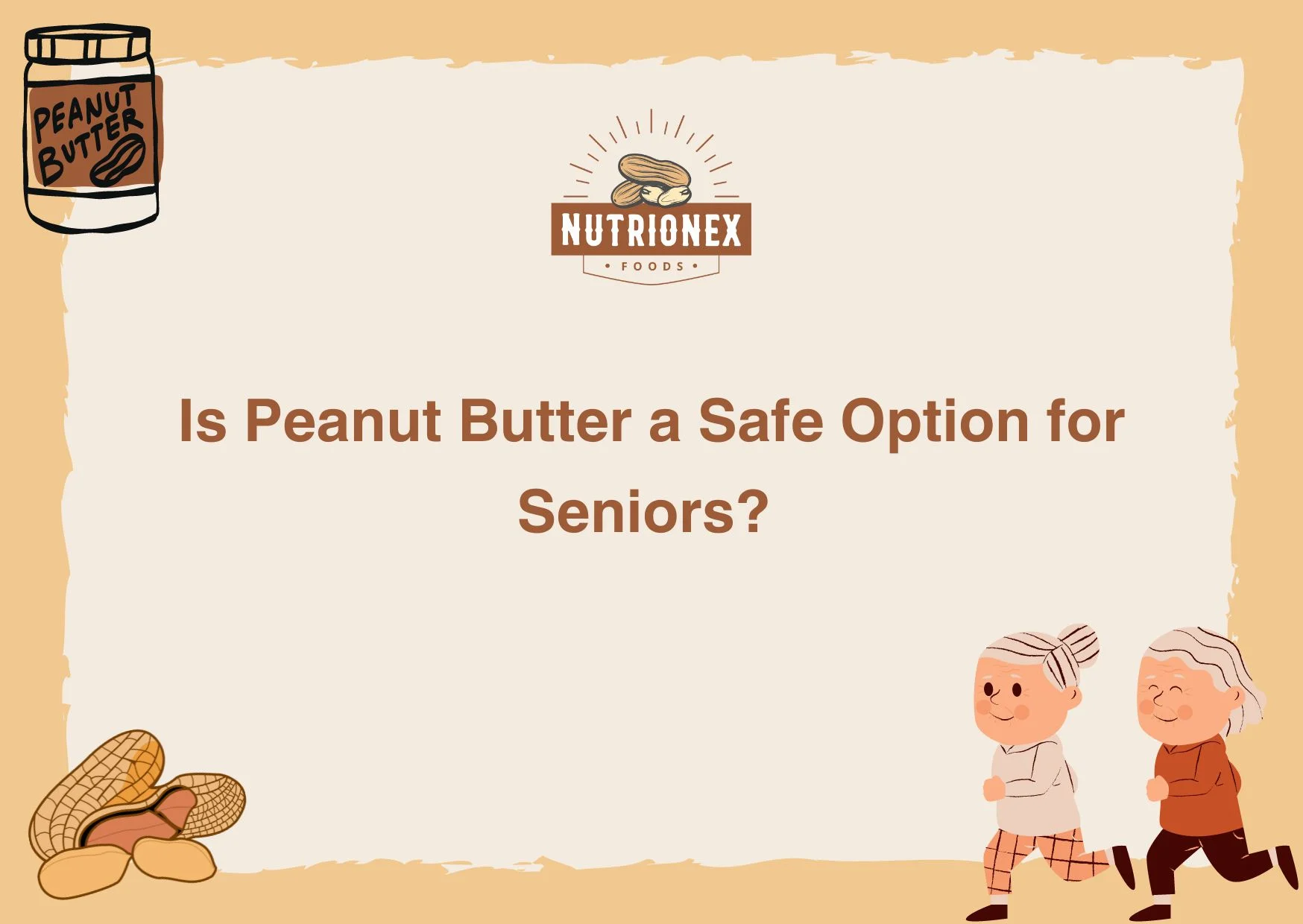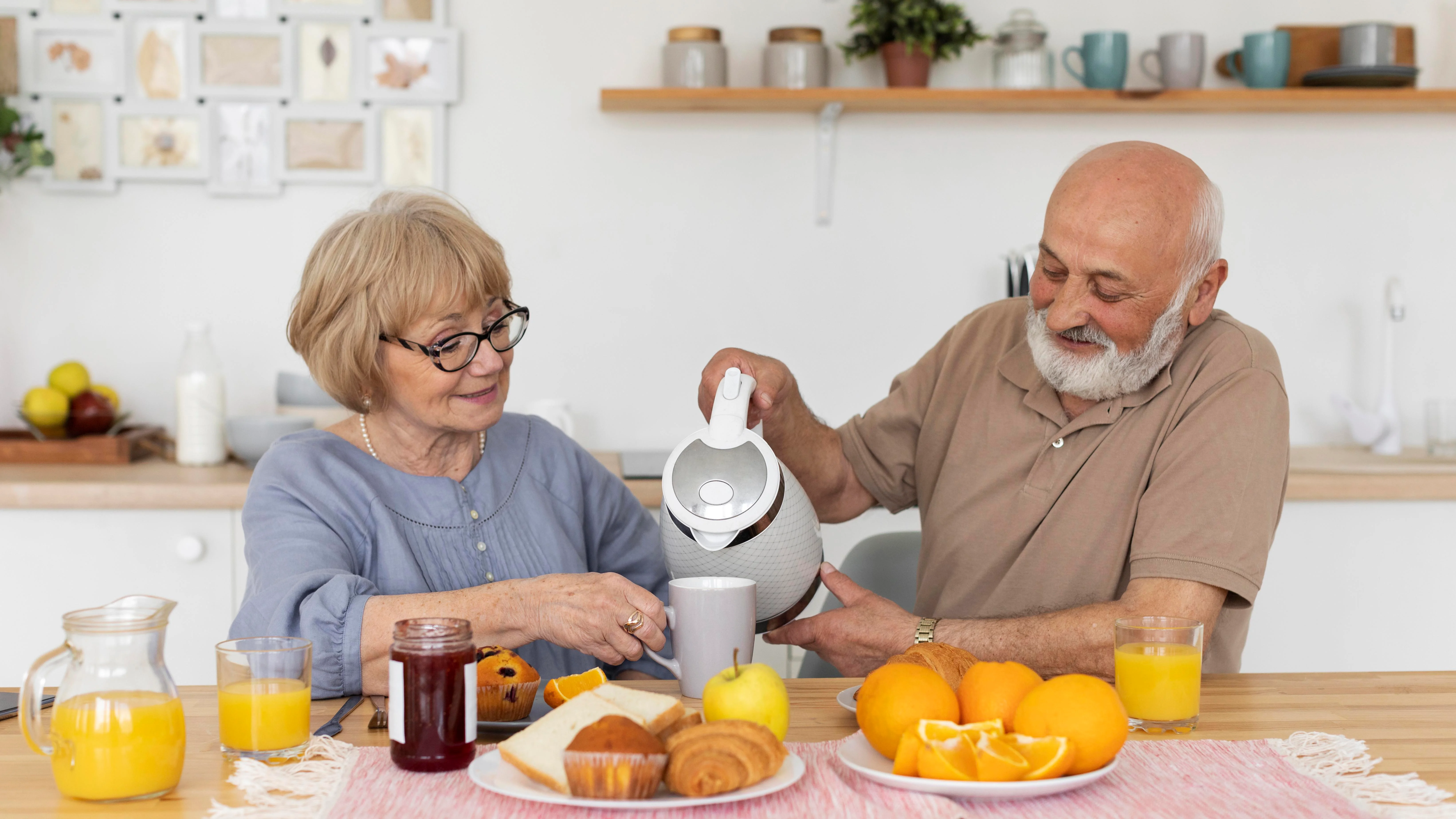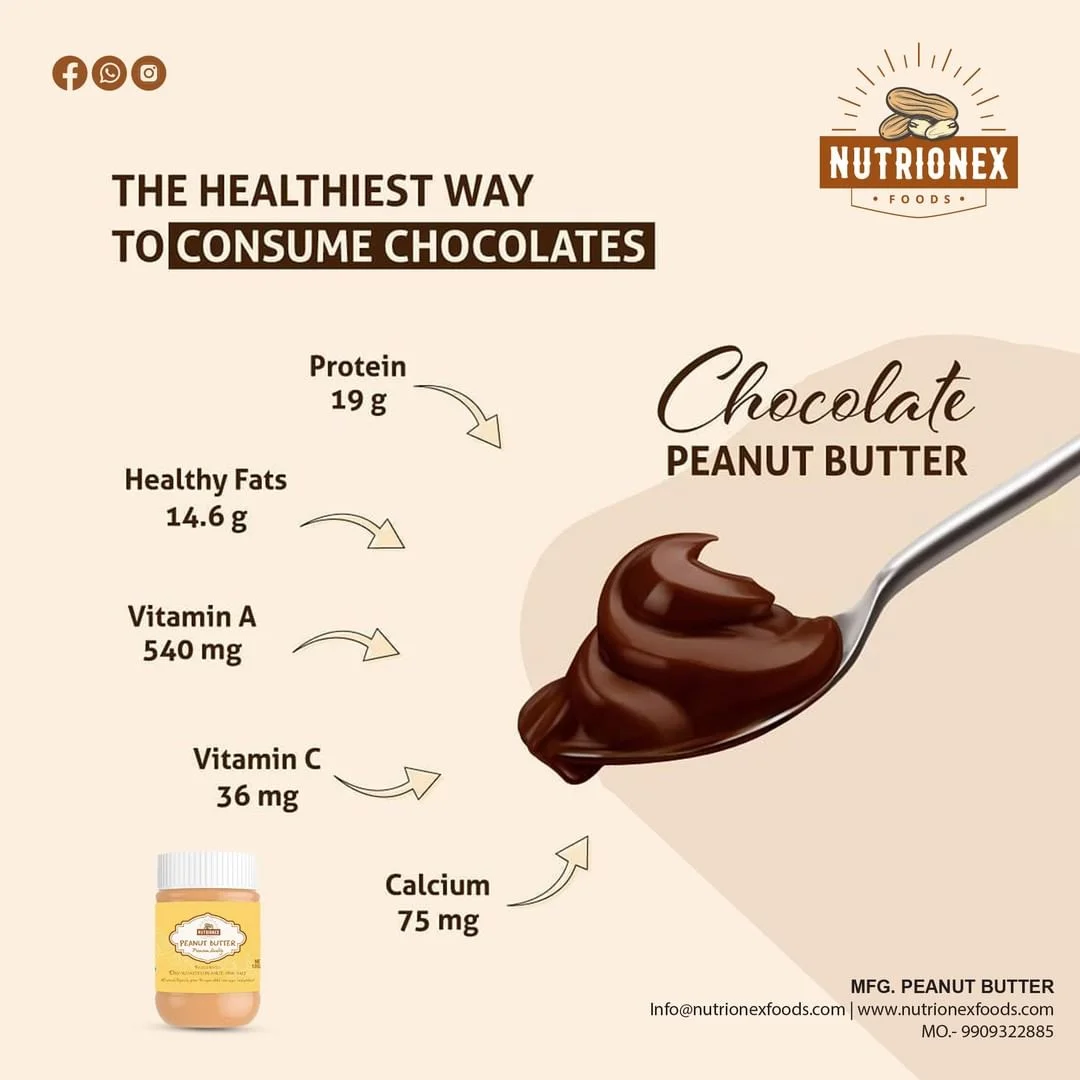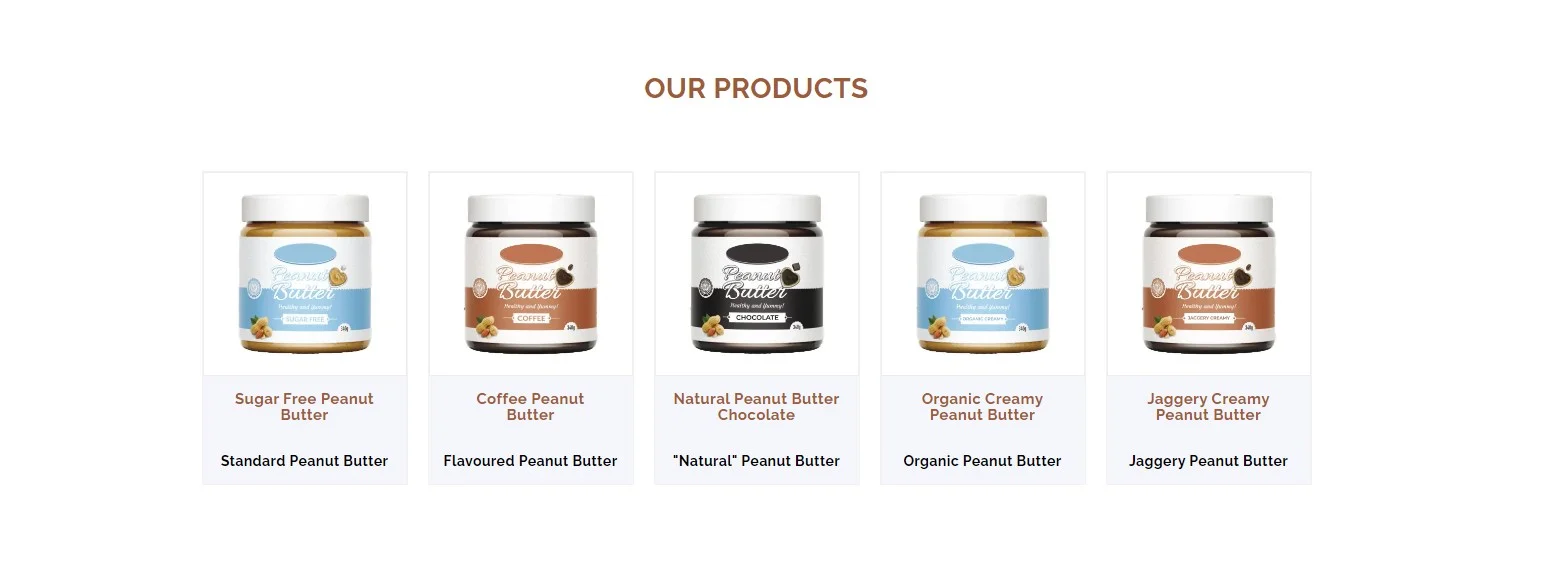
Is Peanut Butter A Safe Option For Seniors?
The Nutritional Benefits of Peanut Butter for Seniors
Peanut butter is packed with nutrients that are especially important for seniors. Protein Powerhouse Peanut butter contains 8 grams of protein per 2 tablespoon serving. Protein helps maintain muscle mass and strength, which tends to decrease with age. Adding peanut butter to your diet is an easy way to boost your protein intake.
• Healthy Fats
Peanut butter contains heart-healthy monounsaturated fats. Monounsaturated fats help lower "bad" LDL cholesterol and maintain "good" HDL cholesterol. They may even help reduce the risk of heart disease. Peanut butter also contains omega-6 fatty acids, which are good for skin and hair health.
• A Rich Source of Antioxidants
Peanut butter is loaded with antioxidants like resveratrol that help prevent cell damage and provide other benefits. Antioxidants may help reduce the risk of some diseases like cancer and Alzheimer's.

• Bone-Building Minerals
Peanut butter contains magnesium, phosphorus, and manganese which help maintain bone density and strength. As we age, bone health becomes increasingly important, so consuming mineral-rich foods like peanut butter is key.
Peanut butter really is a nutritional powerhouse for seniors. Adding just a few tablespoons a day can have significant health benefits. Spread it on whole wheat toast, use it in place of tahini in hummus, or just eat it straight from the spoon. However you enjoy it, your body and mind will thank you.
How to Enjoy Peanut Butter Safely: Tips for Seniors
Peanut butter is a tasty treat, but as you get older, you need to take some precautions. Here are some tips to help you enjoy peanut butter without worry:
• Choose a Smooth, Natural Peanut Butter
Go for an all-natural peanut butter with no added sugar, salt or hydrogenated oils. These additives are hard for some seniors to digest and can spike blood sugar. A smooth, creamy peanut butter is also easier to eat, especially if you have dentures or other dental issues.
• Watch Your Portion Sizes
While peanut butter is healthy in moderation, it’s high in calories. As an older adult, your metabolism and activity levels decrease, so you don’t need as many calories. Stick to 1-2 tablespoons at a time, and avoid eating it straight from the jar! Spread it on bread, celery or apples for a balanced snack.

• Stay Hydrated
Peanut butter is naturally sticky, so it can be hard to swallow for some seniors. Drink plenty of water or another liquid with your peanut butter snack. This will help the peanut butter go down easier and prevent choking.
• Talk to your doctor about medications
If you’re on blood thinners or other medications, check with your doctor before eating peanut butter. Some medications can interact with the nutrients in peanut butter, especially the vitamin K. Your doctor may recommend limiting or avoiding peanut butter depending on your prescriptions.
Peanut butter can absolutely be part of a healthy diet for seniors when consumed properly and in moderation. Follow these tips to enjoy your peanut butter safely and worry-free. If you have any concerns about eating peanut butter or interactions with your medications, talk to your doctor.
Best High Protein Peanut Butter From Nutrionex Brand
Nutrionex makes some of the healthiest peanut butter options for seniors. Their natural peanut butter are packed with protein and healthy fats to keep you energized, without a lot of added sugar.
• Creamy Peanut Butter
Nutrionex's creamy peanut butter has just one ingredient: peanuts. Each two-tablespoon serving has 8 grams of protein and 16 grams of fat to keep you feeling full. The creamy texture makes it perfect for spreading on bread, bananas, or celery.
• Crunchy Peanut Butter
If you prefer a little texture, Nutrionex's crunchy peanut butter has roasted peanuts stirred right into their creamy base. You get the same nutritional benefits, with a satisfying crunch in every bite. The peanuts provide extra protein and healthy unsaturated fats.
• Sugar Free peanut Butter
Sugar-free peanut butter offers a guilt-free option for health-conscious individuals. By eliminating added sugars, it maintains the natural sweetness of peanuts while reducing overall sugar content. Versatile and delicious, it's ideal for various recipes and suits those managing sugar intake for health reasons.
Potential Drawbacks of Peanut Butter for the Elderly
While peanut butter can be part of a healthy diet for seniors in moderation, there are a few potential downsides to keep in mind.
First, peanut butter is high in fat, especially saturated fat. For those watching their cholesterol or heart health, consuming too much peanut butter could be problematic. A two tablespoon serving contains 16 grams of fat, 3.5 of which are saturated. As with everything, consume in moderation.
Another concern is the high calorie density. Peanut butter packs nearly 200 calories into just two tablespoons, so it’s easy to overindulge. For seniors struggling to maintain a healthy weight, portion control is key.
• Choking Hazard
Peanut butter can also pose a choking risk for some elderly individuals, especially those with swallowing difficulties. The sticky, thick texture could potentially block the airway. If choking is a concern, smooth or crunchy peanut butter may be easier to swallow than chunky varieties.
• Allergy Alert
Finally, peanut allergies are common and can be life-threatening. Seniors with a peanut allergy, especially undiagnosed allergies, should avoid peanut butter altogether due to the risk of a dangerous allergic reaction.
While peanut butter does provide nutritional benefits for seniors like protein, healthy fats, and antioxidants, there are some potential disadvantages to keep in mind. As with many foods, moderation, portion control, and awareness of individual health conditions are key to gaining the benefits without the risks. Consumed occasionally and in proper amounts, peanut butter can absolutely be part of a balanced diet for most elderly individuals.
Conclusion
So in the end, the choice is yours. Peanut butter can be a healthy part of an overall balanced diet for seniors when consumed in moderation. Just be mindful of the extra calories, salt, and sugar in some varieties. Go for the natural stuff when possible. Spread it on whole wheat bread or pair it with fresh fruit for a nourishing snack. If you have trouble chewing or swallowing, try mixing it with a little hot water or non-dairy milk to soften it up. The bottom line is that peanut butter can still be a tasty treat that provides key nutrients for older adults. Trust your own tastes and nutritional needs to decide if it deserves a spot on your grocery list or not.
Disclaimer: The content presented in this blog is intended for educational purposes exclusively and should not be construed as medical guidance. Seniors are encouraged to seek counsel from a healthcare professional or a nutritionist for tailored dietary recommendations
Peanut Butter FAQs: Answering Common Questions About Seniors and Peanut Butter
Peanut butter is a staple in many households, but is it safe for seniors? Here are some common questions and answers about peanut butter and older adults:
1. Can seniors eat peanut butter with high blood pressure or heart disease?
In moderation, peanut butter can be part of a heart-healthy diet. Look for natural peanut butter with no added salt or sugar. Peanut butter contains mostly
unsaturated fats, which can help lower cholesterol. However, due to its high-calorie density, stick to one to two tablespoons per day
2. Does peanut butter cause constipation in the elderly?
Peanut butter is high in protein and fiber, both of which can help promote regularity. However, if a senior isn’t drinking enough fluids, the fiber in peanut butter could cause constipation. Seniors should aim for 6-8 glasses of water per day to help food move through the digestive tract. Adding a fiber supplement or stool softener may also help for some.
3. Can peanut butter help seniors gain or maintain weight?
Yes, peanut butter can be an excellent way for seniors to gain or maintain weight due to its high-calorie density. Two tablespoons contain nearly 200 calories and 8 grams of protein. For weight gain, aim for 3 to 4 tablespoons of peanut butter per day in addition to other calorie- and protein-rich foods. However, to maintain weight, stick closer to 1 to 2 tablespoons of peanut butter as a snack.

